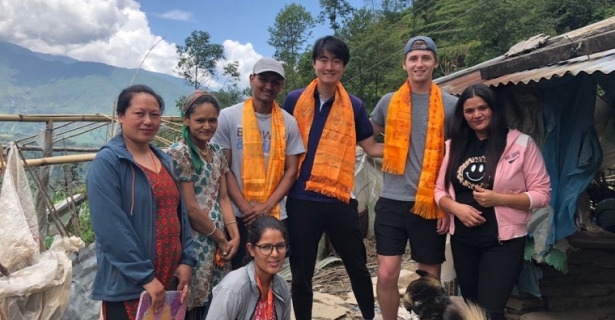Traveling up from the capital Kathmandu, our driver took us on a trek through the mountains of Nepal. Our destination was Baruwa, a small village of ~3000 people, located in the Sindhupalchok District, about 28 miles from the capital. This 28-mile drive took 6 hours as we cut around the mountains, often on narrow dirt/stone roads. On our drive, jostling and tumbling about the backseat as the PHASE car bounced up and down on unpaved roads, I was struck by the topography of our location. At times, to my right, just three inches from our tire was a thousand-foot drop. To our left, a sharp cliff-face, sometimes bare to the rock, remnants of landslides from years past. Our driver swerved and maneuvered across these winding roads, skidding across patches of the road that turned to mud. Thankfully conditions were good, as an excess of rain or snow would render these unpaved roads unpassable by car.
Little did we know, this remote village is considered to be a wealthier, more well-off village due to its relative proximity to Kathmandu. Our arduous journey to Baruwa, which may have been thought of as unreachable in the States, is seen as a somewhat short day-long journey. Living thousands of feet above sea level, sometimes in the clouds, Baruwa is a somewhat accessible location. This brings up a greater issue of connectivity and a theme of lack of access that we saw on our 10-day GROW internship to Nepal.
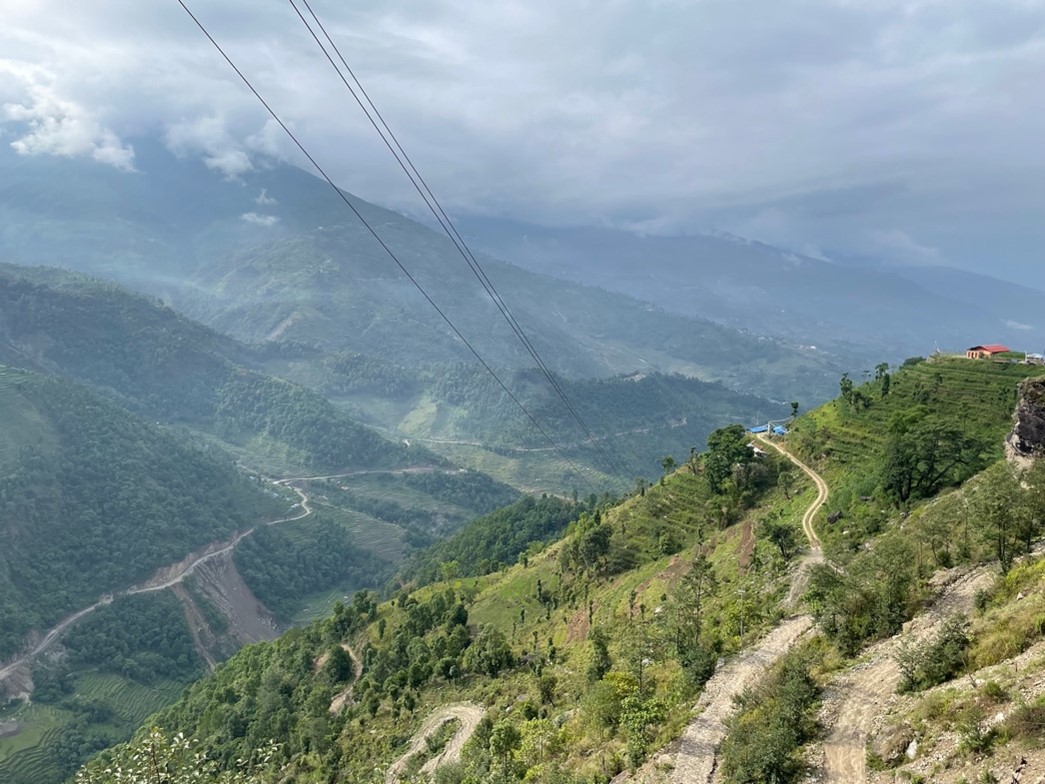
Flying into Nepal, we saw from the air hundreds of houses erected on the ridges of mountains, lining the valleys and peaks of Nepal’s massive mountain ranges. It is a testament to human adaptability and ingenuity, that the people of Baruwa and other Nepali citizens have been living in the harsh, mountain conditions for thousands of years. Even the farms have to be adapted for the mountainous conditions. Fighting for every bit of flat land, using an ox to flatten and plow through any bit of possible farmland, each level of their terrace farms spanning the mountains is the product of hours of hard work and grit.
The GROW internship is part of an ongoing partnership with our club, Tufts for Health Equity (THE), and PHASE (Practical Help Achieving Self-Empowerment) Nepal. In our mission to support health equity across the globe, we work closely with PHASE Nepal providing funding, literary support, and research in modern healthcare as they provide critical health access to remote rural villages in Nepal.
The GROW internship enables THE staff to directly observe PHASE’s on-the-ground activities, often coupled with the supervision of current research projects such as nutritional or sex education surveys. As part of meetings with Rudra Neupane, Programme Manager (pictured second from the left), he described the goal of PHASE Nepal as bringing healthcare access to rural areas in Nepal. Working in places where the government isn’t, PHASE currently has healthcare outposts/clinics in 13 rural villages and some form of involvement in 28 areas.
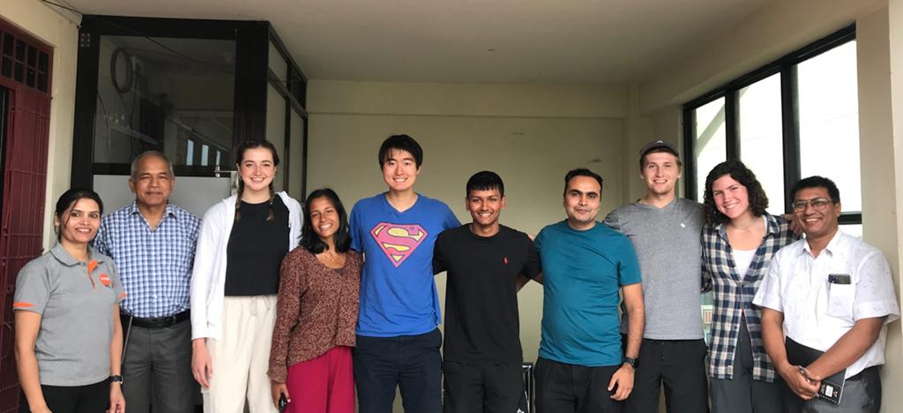
I was part of a team of three that went to the Baruwa village area. There we stayed with four PHASE workers pictured above: Prema Kesi (ANM), Muna Sharma (health supervisor), Monisa Lama (social mobilizer), Bhimala Tamang (agricultural technician). After being shown the utmost hospitality and welcome, we accompanied the PHASE women as they led community meetings/visits; managed the only health clinic in Baruwa; and supervised the development of nutrition and new agricultural techniques.
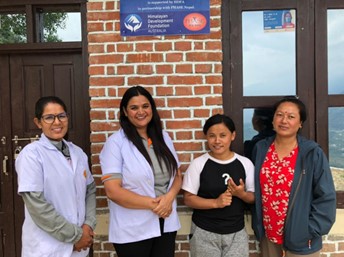
These four women served as the first line of healthcare for the people in Baruwa. The work they did were not limited to a 9-5, these PHASE workers were often the only access to healthcare for miles. On our last night, at 11:00 pm, a girl was brought into their home for the removal of an insect in the ear. Regardless of time or weather, the PHASE women were on the clock 24/7. However, sometimes there’s only so much they could do. On our third day, a young girl came into the clinic complaining of stomach pain. She was diagnosed with potential appendicitis, and it was recommended she see a specialist in Kathmandu immediately, in case of a burst appendix and necessary appendicectomy. Hours later, after the clinic had long closed, the girl and her family arrived at the PHASE office, unable to arrange transportation to Kathmandu. Now visibly in pain from her gut, the girl was prescribed pain medication as the PHASE workers and the girl’s parents found a motorcyclist that was willing to take her down the windy road to the capital in the morning. It was fortunate that the PHASE workers were there, able to provide critical diagnosis and arrange transportation to the capital. At the same time, the lack of access to hospitals and the high level of healthcare in Kathmandu was made painfully clear.
In an interview with us, when we asked them what their hopes and needs for their work were, they replied with access. They wanted access to vegetables, and people to grow proper organic fruits and vegetables for better nutrition. More importantly, however, they wanted better access to healthcare. They wanted a hospital, ambulance service perhaps more advanced hospitals in Kathmandu. This would be supported by better roads to Kathmandu, which would also enable the people of Baruwa to more easily take goods to the capital, supporting their livelihood. Connectivity to Kathmandu, through better roads, trade of goods, and ambulance access, provides so much potential benefit towards the quality of life to the people of Baruwa.
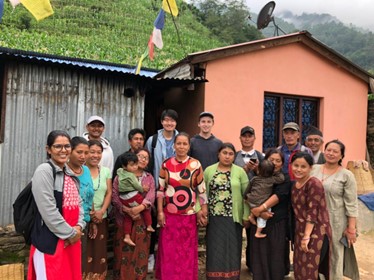
This GROW internship was an incredible opportunity to see the amazing work done at PHASE Nepal. More than that, it was eye-opening to see the privileges we have here in the States and the lack of access to proper healthcare and nutrition in Nepal. Hopefully, by taking back these stories, and visualizing our impact on the ground of rural villages such as Baruwa or Manbu, we will be able to better support PHASE Nepal in support of the mission of health equity around the globe.





